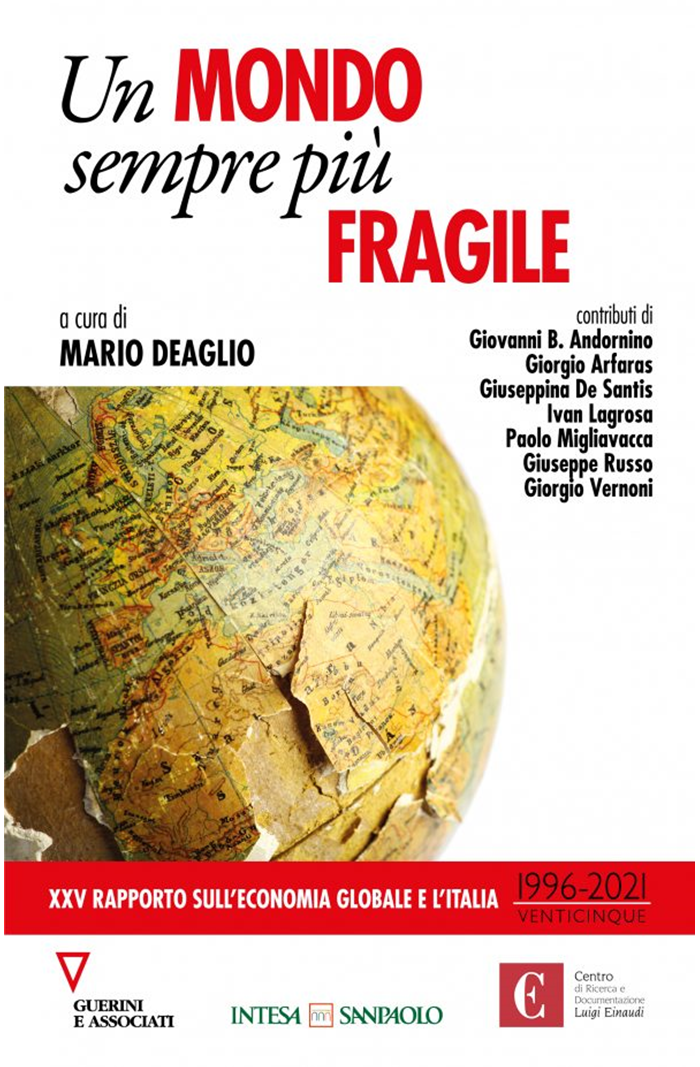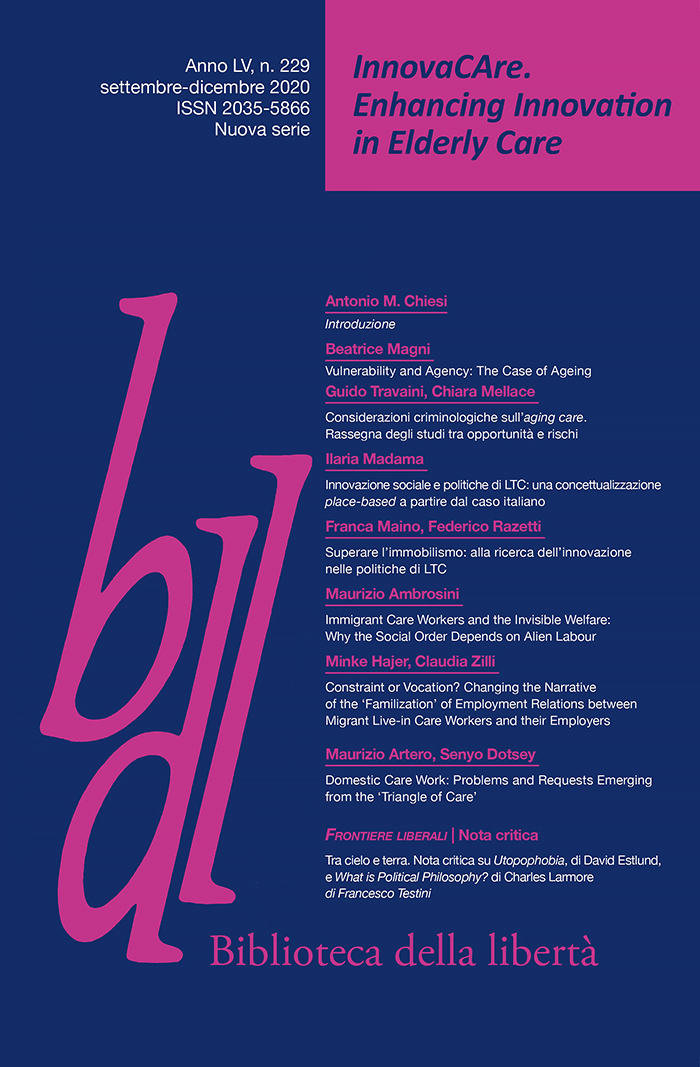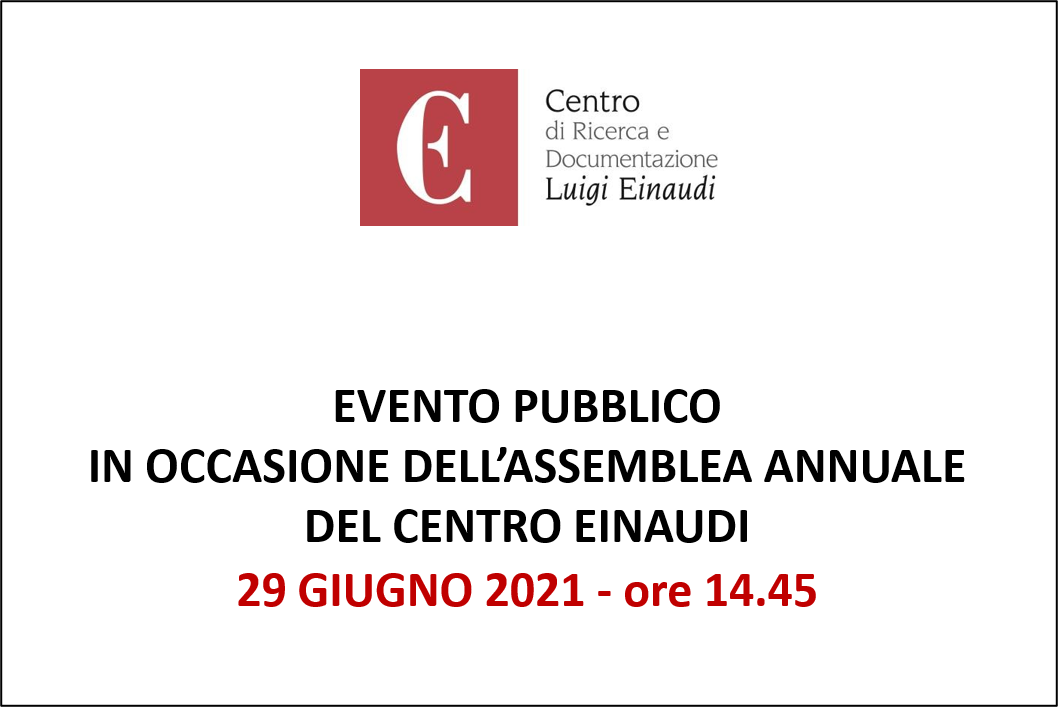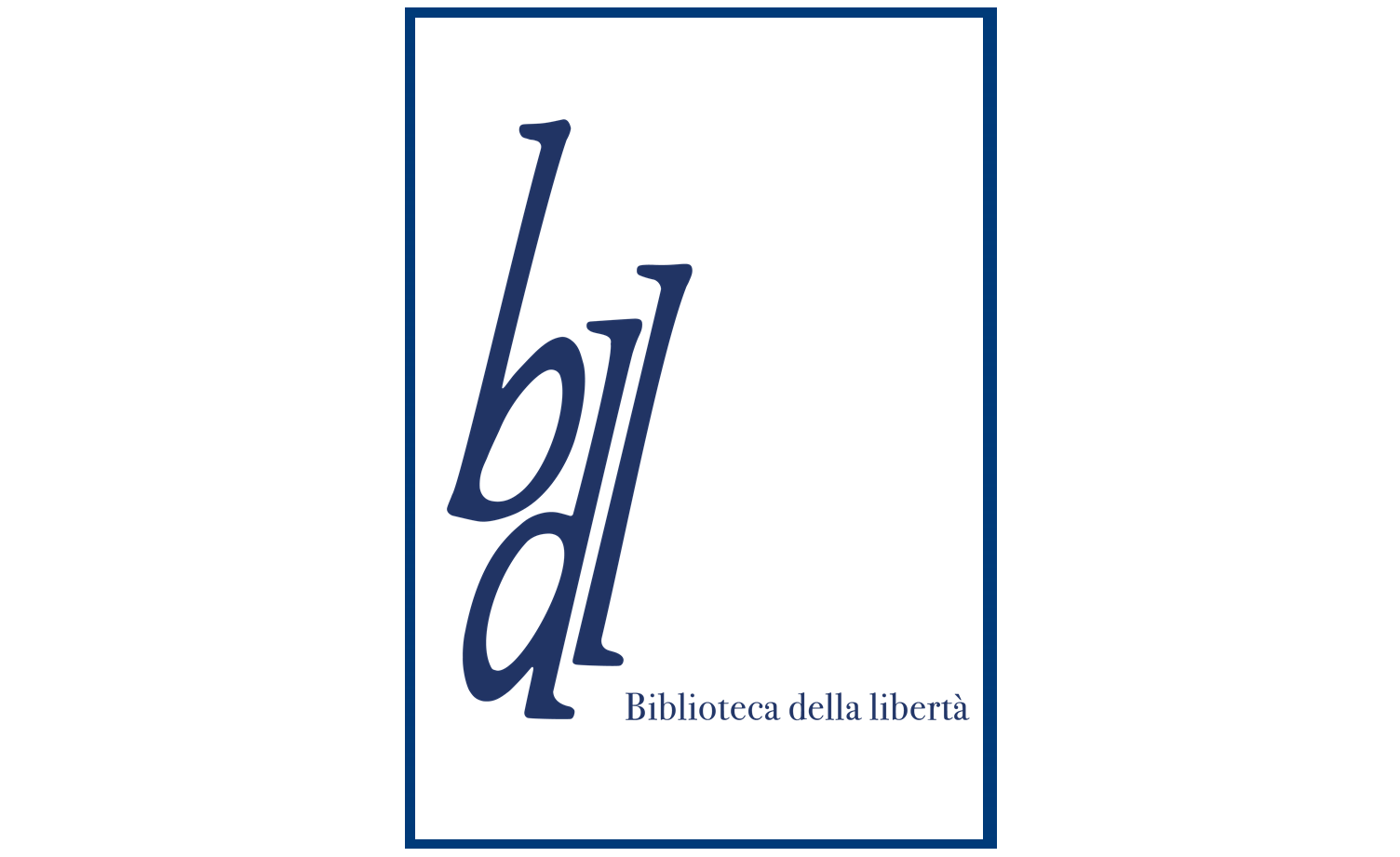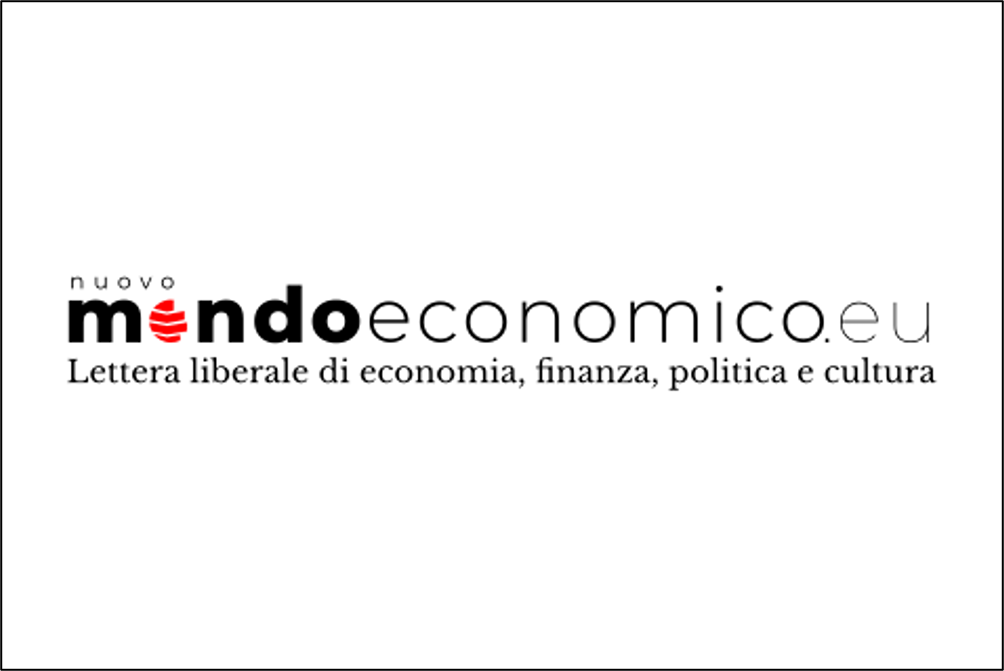- Ricerche e Progetti
- Biblioteca della Libertà
- Pubblicazioni e Working Paper
- Articoli e media
- Eventi e notizie
Notizie in evidenza
Il XXV Rapporto sull'economia globale e l'Italia, curato da Mario Deaglio, in collaborazione con Intesa Sanpaolo ed edito da Guerini e Associati, è disponibile in libreria e, sui principali store online, anche in versione e-book.
Video della presentazione del volume
Sul n. 229 di Biblioteca della libertà - ora online - Saggi di Beatrice Magni, Guido Travaini e Chiara Mellace, Ilaria Madama, Franca Maino e Federico Razetti, Maurizio Ambrosini, Minke Hajer e Claudia Zilli, Maurizio Artero e Senyo Dotsey
Introduzione di Antonio M. Chiesi
Sezione Frontiere liberali / Tra cielo e terra. Nota critica su "Utopophobia" di David Estlund e "What is Political Philosophy?" di Charles Larmore | Francesco Testini
Il 29 giugno, l’Assemblea aperta del Centro Einaudi ha visto la partecipazione del Ministro per l’Innovazione Tecnologica e la Transizione Digitale, Vittorio Colao, che ha affrontato i principali problemi di attuazione del PNRR e illustrrato l’attività del suo Ministero. Sono intervenuti il Prof. Francesco Profumo, Presidente della Fondazione Compagnia San Paolo e il Dott. Giorgio Marsiaj, Presidente dell’Unione Industriale di Torino. Ha introdotto Beppe Facchetti, Presidente del Centro Einaudi e ha moderato Francesco Antonioli, giornalista, Direttore di nuovo Mondo Economico. La registrazione dell'evento è disponibile sul sito e sui canali social del Centro Einaudi.
In anteprima l'introduzione di Antonio M. Chiesi in pubblicazione su Bdl n. 229
Francesca Cerutti analizza il lascito del Covid nelle relazioni internazionali: catastrofe o opportunità?

